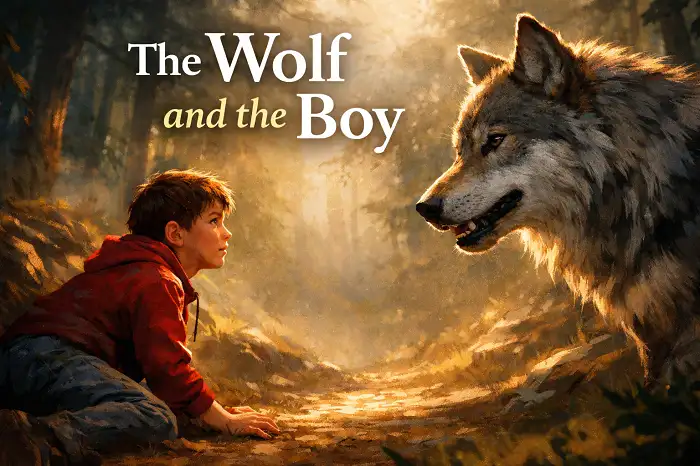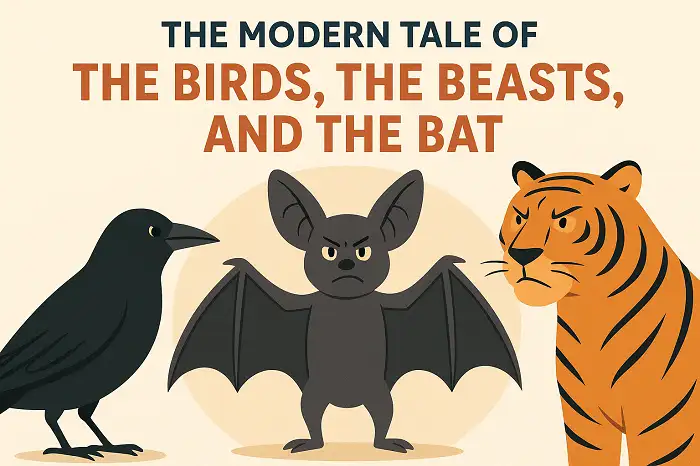The Kid on the Housetop by Aesop for ESL students with a video, vocabulary practice in real context, and questions for discussion based on the English Immersion Program The Kid on the Housetop is now in the public domain available on Gutenberg Project. Video of the Kid on the Housetop The Kid on the Housetop A kid climbed up on to the roof of an outhouse, attracted by the grass and other things that grew in the thatch; and as he stood there browsing away, he caught sight of a wolf passing below, and jeered at him because he couldn't ...
Home » English Short Stories » The Kid on the Housetop by Aesop for ESL Students

The Kid on the Housetop by Aesop for ESL Students
Updated: by Dr. Mohammad Hossein Hariri Asl
Time to Read: 3 minutes | 273 Views | 6 Comments on The Kid on the Housetop by Aesop for ESL Students
Share This Post
About the Author
Dr. Mohammad Hossein Hariri Asl is an English and Persian instructor, educator, researcher, inventor, published author, blogger, SEO expert, website developer, entrepreneur, and the creator of LELB Society. He's got a PhD in TEFL (Teaching English as a Foreign Language).
Number of Posts: 4242



3. This story emphasizes the importance of demonstrating intentions and beliefs through actions rather than relying solely on verbal commitments. While words can be powerful, they are often easy to express without real commitment. Furthermore, people are judged by what they do, not what they say.
Your interpretation of Aesop’s fable, “The Kid on the Housetop” captures the essence of the story perfectly. It indeed underlines the critical difference between words and actions, reminding us that true character and intentions are best reflected through deeds rather than mere promises.
2. The wolf highlighted the temporary nature of power or advantage. The advantage of being on the roof is not permanent, as circumstances can change. This implies that external factors influence our behavior, but we should respond thoughtfully to these changes.
Your comment on Aesop’s fable insightfully captures the transient nature of power and advantage. The wolf’s perspective underscores that being on top is never guaranteed, as circumstances can shift unexpectedly. This highlights the importance of being adaptable and thoughtful in our responses to changing external factors, rather than being complacent or overconfident.
1. The son empowered himself by climbing onto the roof and mocked the wolf because it couldn’t reach him.
Your comment on the fable accurately highlights the son’s sense of empowerment and superiority by climbing onto the roof and mocking the wolf. This action symbolizes how gaining a higher vantage point can give one a temporary sense of invincibility and control over a perceived threat. However, it’s also a reminder that such empowerment can be fleeting and should be approached with humility, as circumstances can change and the tables can turn unexpectedly.